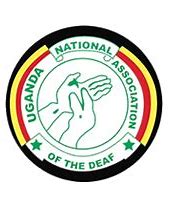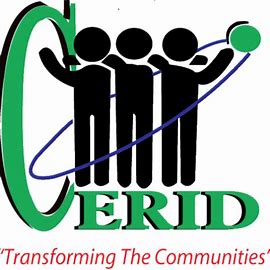Empowering Deaf Voices in Uganda
Creating a World Where Individuals with Disabilities Are Embraced, Empowered, and Cherished.
THE PROBLEM LIDIT is solving
70% of deaf children and adolescents in Uganda face developmental delays resulting to dis-empowerment and discrimination (NUDIPU, 2023). This results in severe social isolation, poverty, and limited access to quality education, deepening their marginalization.
Globally, the deaf community remains one of the most marginalized, especially in developing countries, where 80% of the world’s 70 million deaf people resides (World Federation of the Deaf, 2022). In contrast, countries like Sweden and Finland have successfully implemented inclusive education systems, offering equal opportunities in deaf children (World Federation of the Deaf, 2023).
With a population of about 1.08 million people with hearing impairments, accounting to 2.9% of the total population, the situation is dire in Uganda. Many deaf children and adolescents struggle daily to seek attention and to be hard, they cannot follow lessons at school or even explain symptoms to a doctor. Unemployment among deaf adults in Uganda is scarce falling below 20% and over 50% poverty rates compared to 21.4 national rate (UBOS, 2023).
The education system is ill-equipped to meet the needs of deaf students, especially in rural areas, where, resources and specialized support are scarce eg. Lack of sign language interpretation, lack of deaf inclusive secondary schools.
Social discrimination and exclusion of the deaf children and adolescents driven by family rejection, communication barriers, and cultural misconceptions of deafness forms a deep-rooted causes to their developmental delays, marginalization & integration. Story of betty, mother of two children one with deafness, was called a witch, rejected by husband testifies the exclusion; Ramathan a 14 year old multiply disabled facing abandonment by parents.
Despite efforts by the government and NGOs, inconsistent policy implementation leaves many deaf individuals without the necessary resources to overcome these challenges, prolonging their exclusion from society (World Bank, 2020).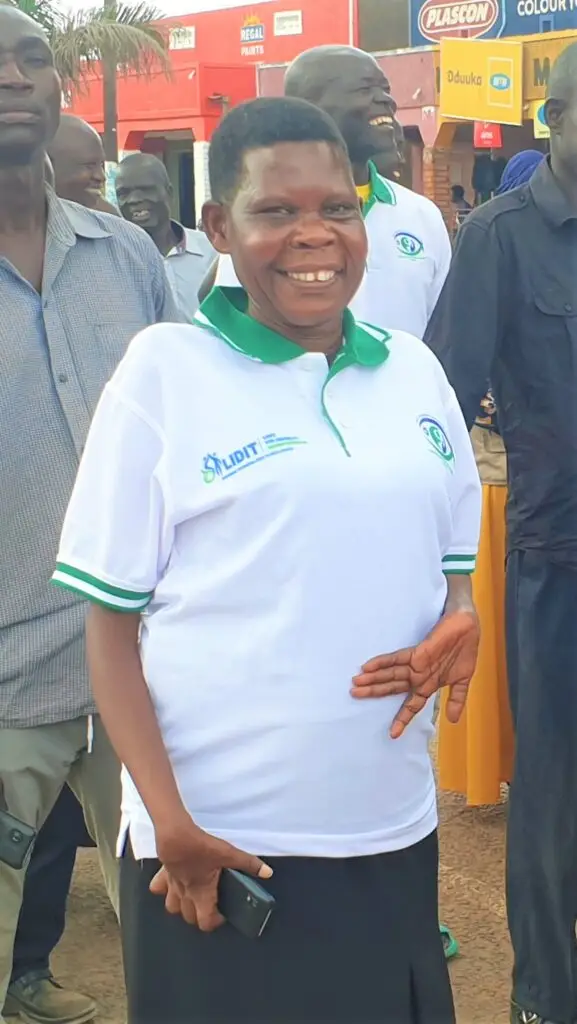

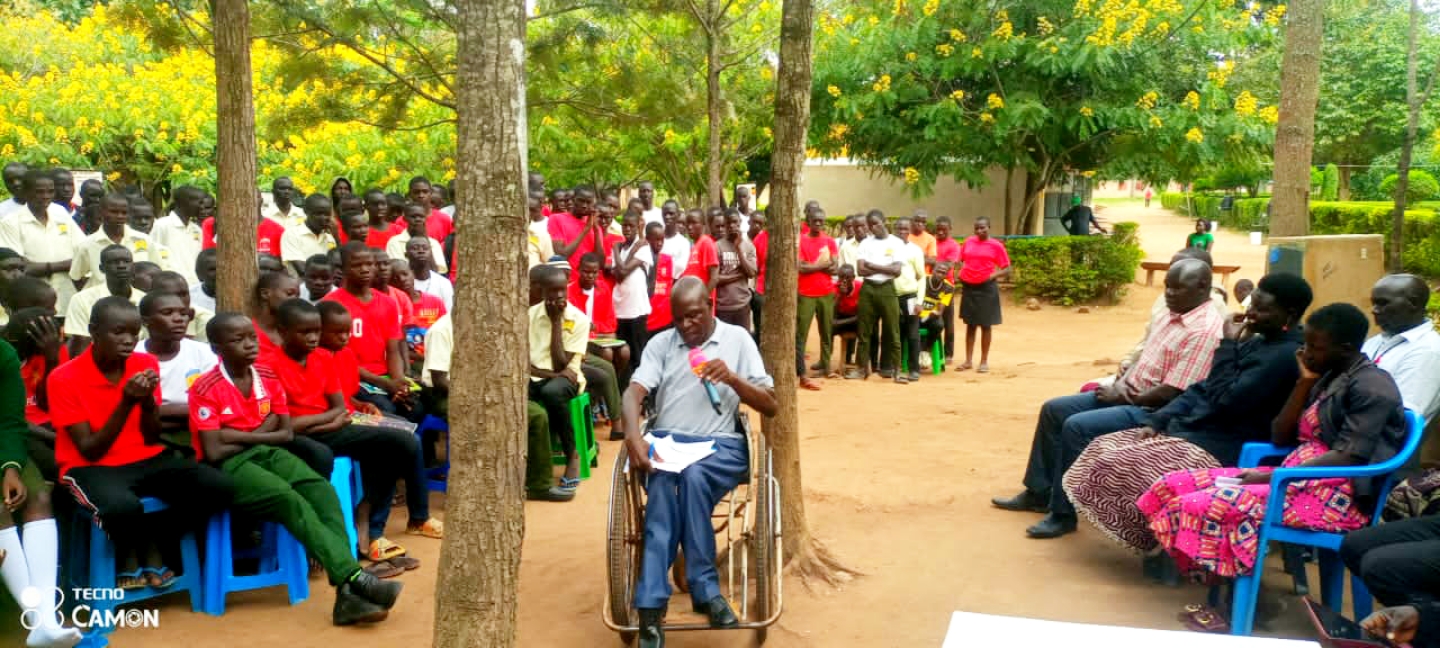
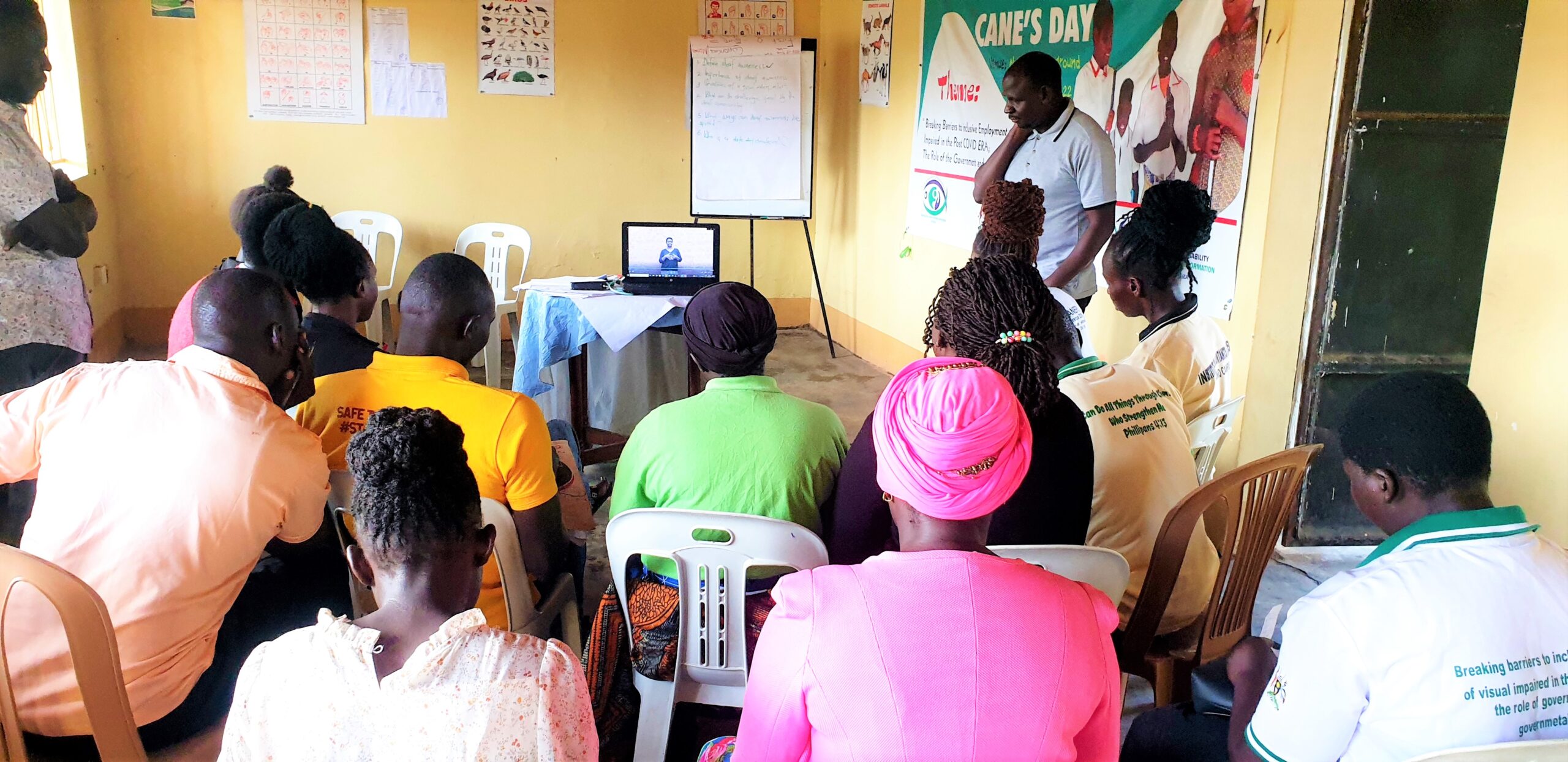
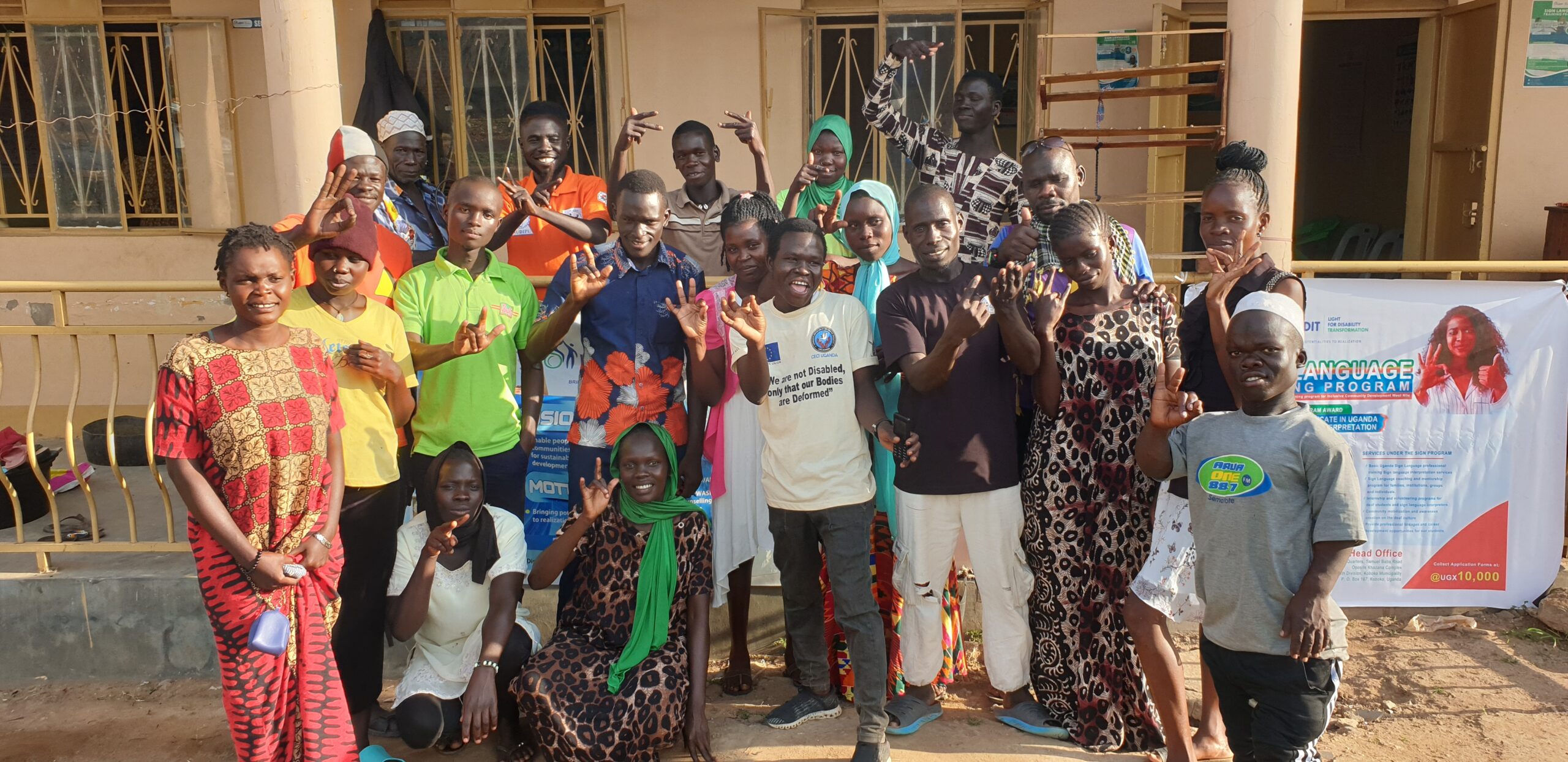
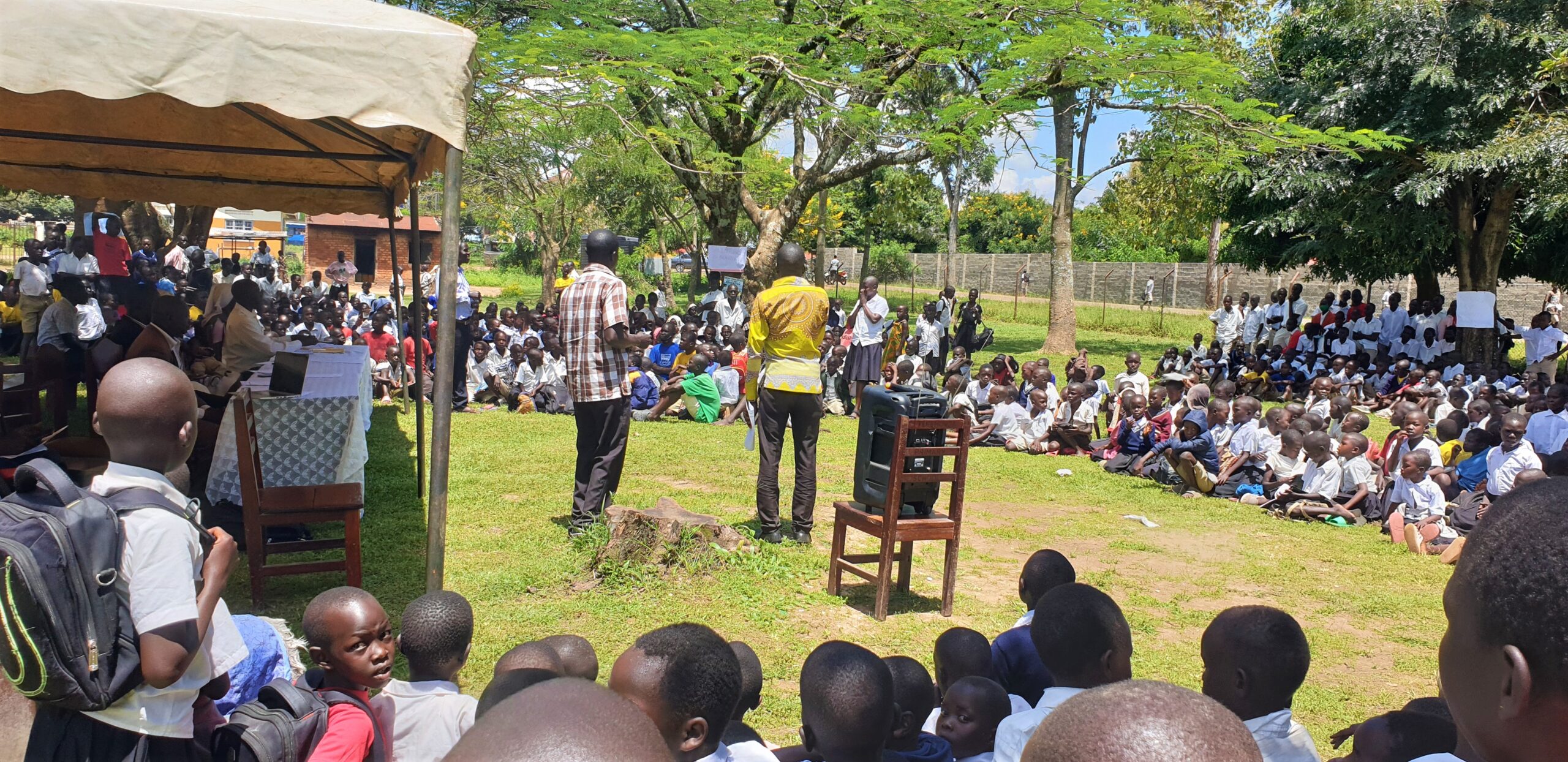
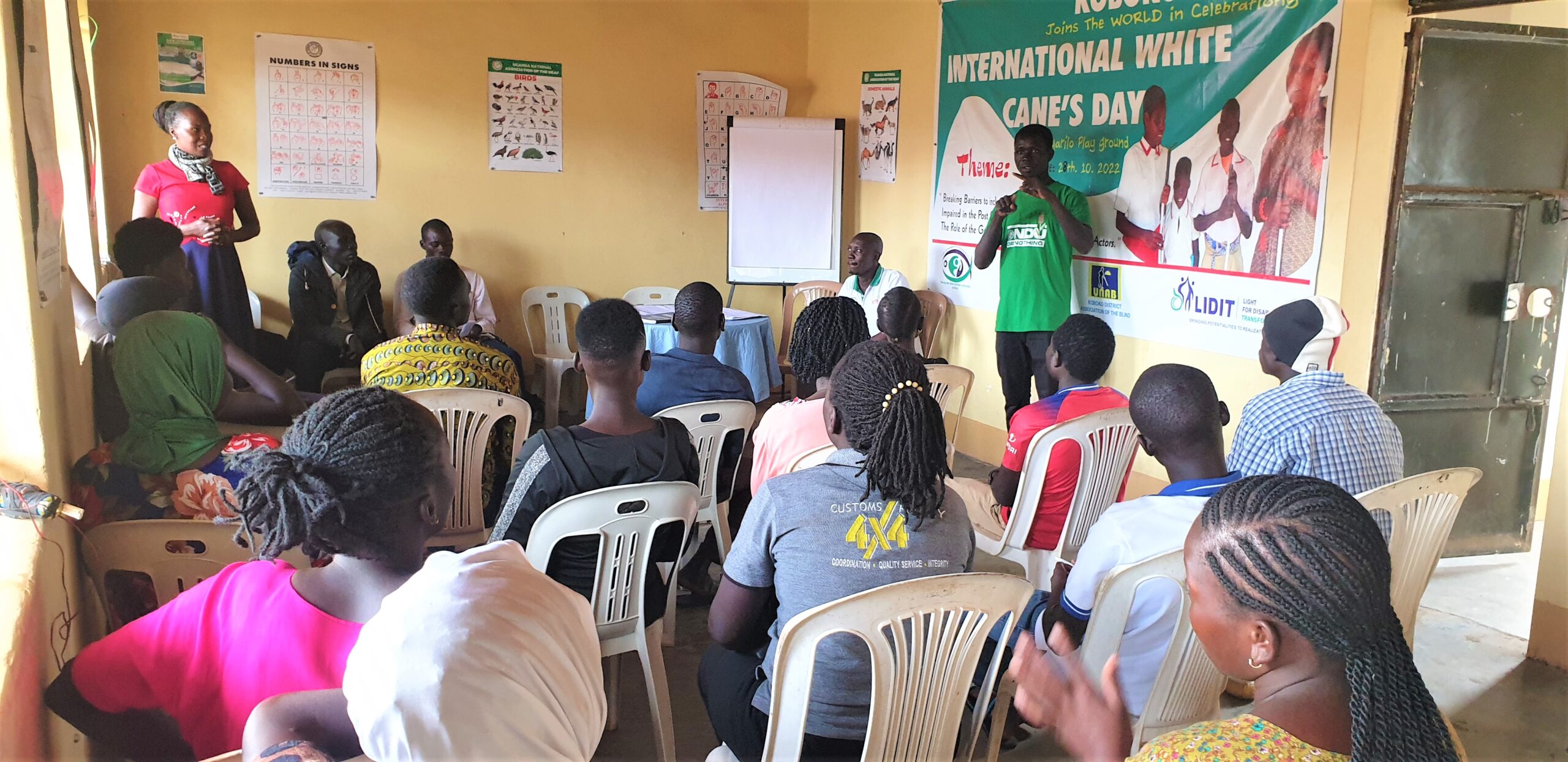
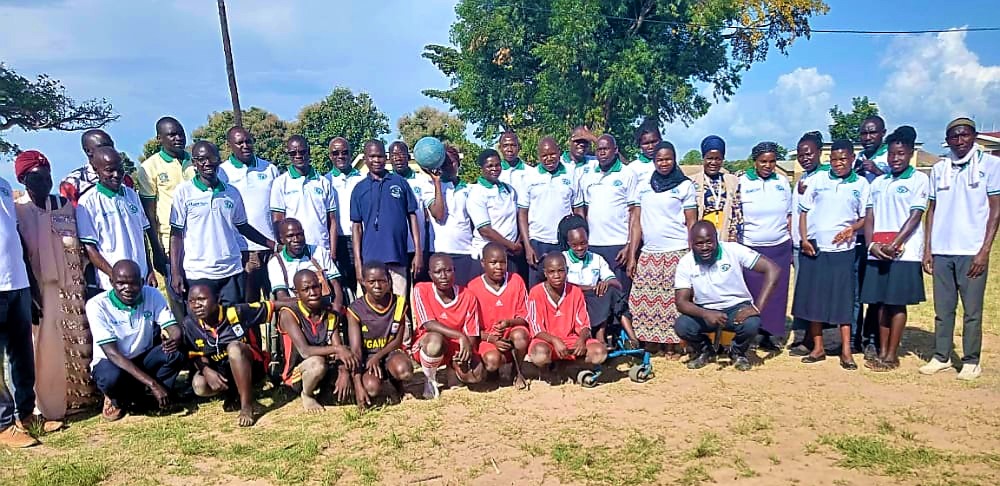
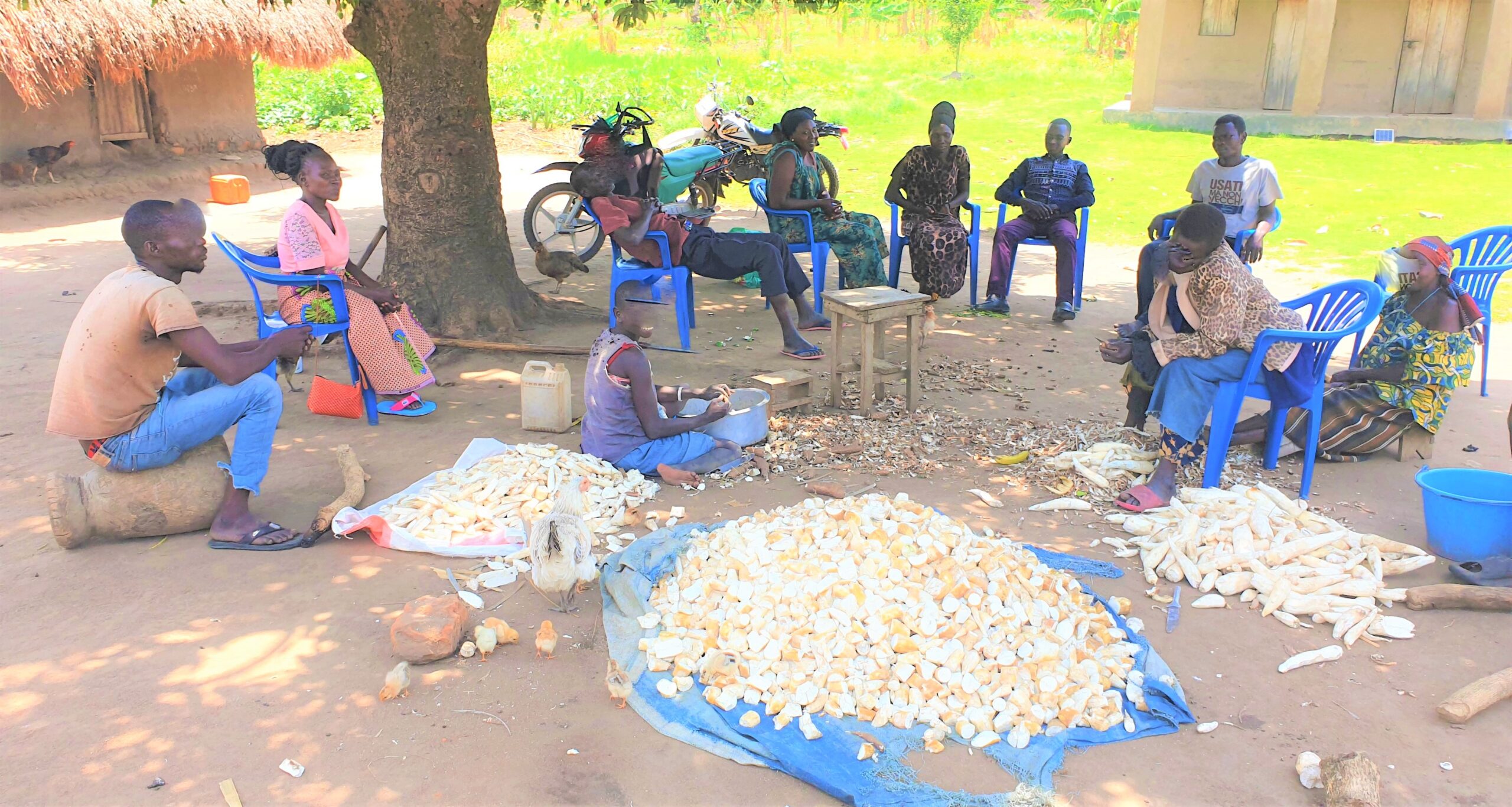
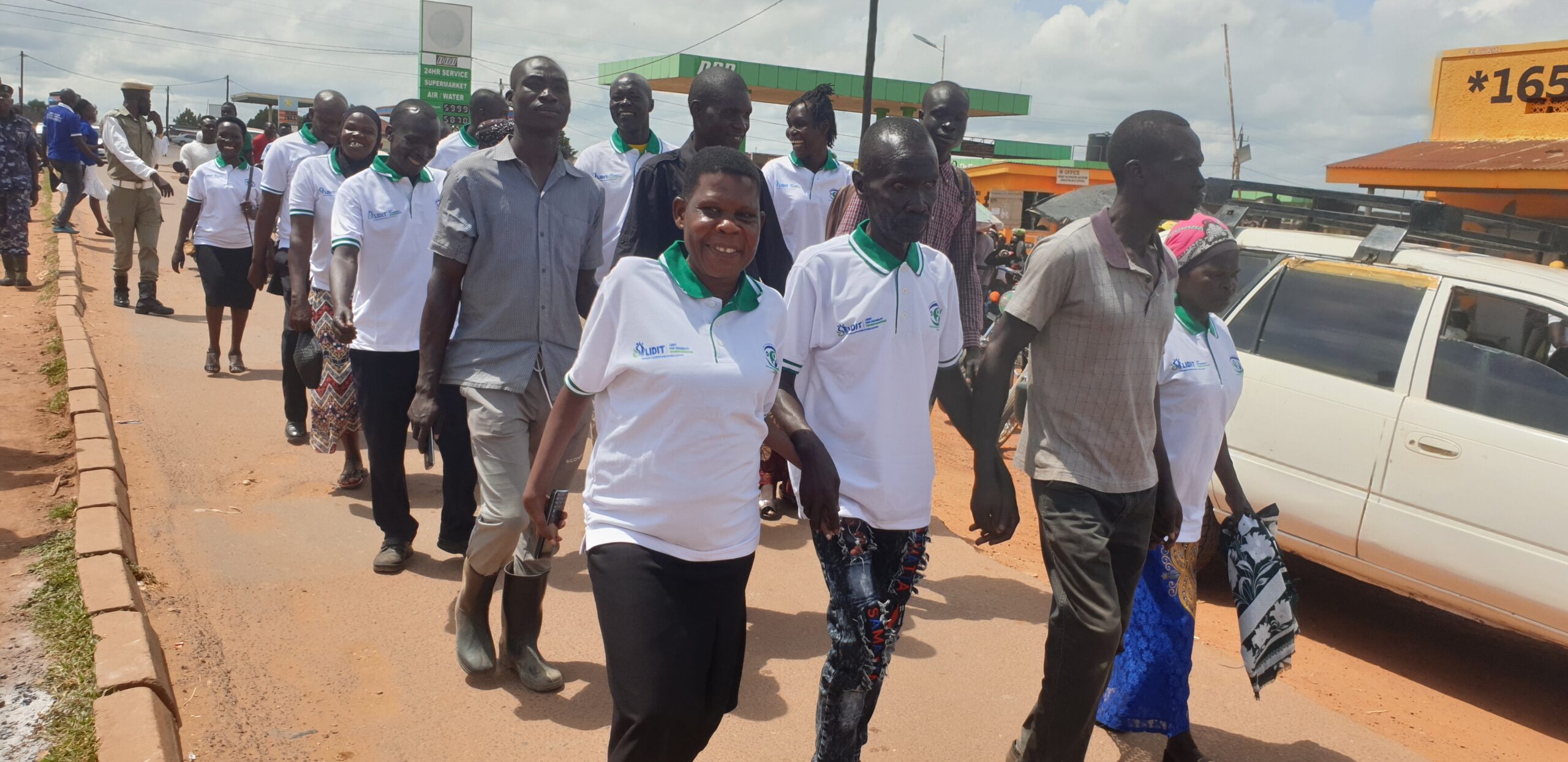

beneficiary stories that inspired our journey
The year was 1992, when our family was forced to move in an Internally Displaced People's camp (IDP). This was the period when many families were returning from exile because of the Amin liberation wars. There were still rebel attacks in the region. I was just 9 years old when I met Simon at the camp. Simon was a little boy with multiple debilities, parents and neighbors told their kids not to play with him. But Simon was my best friend.
One morning at school, I remember I and Simon sitting in class right in front enjoying the lessons, when we suddenly heard gunshots from every corner of the camp, women were crying, children were screaming. The class went dead silent. Suddenly panic broke out; the bigger children climbed on the tables and jumped out of the window, bags and books were flying, pupils were screaming, Simon and I were pushed on the floor and all the other kids were trampling all over us. There was one chance that I could jump and run, but I couldn’t something was holding my leg, I looked behind it and Simon looked right into my eyes terrified; he cried, “David Kukokolokina”, “David don’t leave me here.” I was 9 years old, scared, and shook him off and ran.
Three days later, when the dead bodies were counted, Simon was among those brutally murdered. Looking back, I was his only chance to survive. This haunted me until today. I wanted to become a priest to give back to people with disabilities, so I joined the seminary. And I realized this could not take me close enough to the community. Then I joined the NGO world, where I met many people who are deaf, just like Simon who are not integrated.
I did a fundraiser to support them, but charity was not enough.
I founded Light for Disability Transformation - LIDIT as a community-based, disability-focused organization where we wanted the deaf not to be objects of charity but contributors to society. We have a diverse BOD with different persons with disabilities, for us Sign language is the main means to the integration of the deaf.
Ramadhan a deaf & Multiply Disabled child abandoned by parents.
500 MILES TO ACCESS deaf-inclusive SECONDARY SCHOOL.
Kasa, a 14-year-old deaf and physically disabled boy from Koboko District, West Nile. Abandoned by his parents and cared for by his struggling grandfather. Ramadan lives in isolation. When we met him, he did not even have a name, we called him Kasa because his grandfather is named Kasa. He lives in a pen meant for chickens, sleeps on a sack, and his needs are completely ignored.
Kado, a young deaf girl from Koboko district had to travel 500 miles just to access an inclusive deaf secondary school in Mbale, East Uganda. A trip of this journey is nearly equivalent to school fees for one term. This journey was not a privilege but a necessity forced due to lack of opportunities close to home. From West Nile sub-region alone, over 10 deaf sit for Primary Leaving Examinations (PLE) and yet the region has no single secondary school offering inclusive education for the deaf, leaving many poor parents stranded resulting to high school dropouts among the deaf school-going population.
Women are blamed for disability of their babies.
Betty a mother of two children tells her story highlighting the deep-seated cultural misconceptions surrounding disability in Uganda. After giving birth to her second child, who became deaf at age four, Betty was accused of witchcraft, abandoned by her husband, and not accepted by her in-laws. She is now a single mother struggling to provide needs for her children. The prevailing local data in rural communities of Uganda is that women are always blamed for any disability of their children (newly born or later).
A community that you cannot communicate with.
A young girl in rural West Nile, Uganda, faces insoluble barriers every day simply because she is deaf. Emily 9 years old wakes up every morning to a society where she is unseen and unheard, cannot follow lessons at school, or explain her symptoms to a doctor; when at home, she has no friends and no place to freely socialize and connect with her peers. This is the reality of hundreds and thousands of young girls, women & adolescents stranded, due to sign language inaccessibility in most communities in Uganda. Emilly lives in total isolation and lacks opportunities to integration, a space to play and discover life, learn and develop their skills & talents in Koboko
ACTIVITY PHOTOS
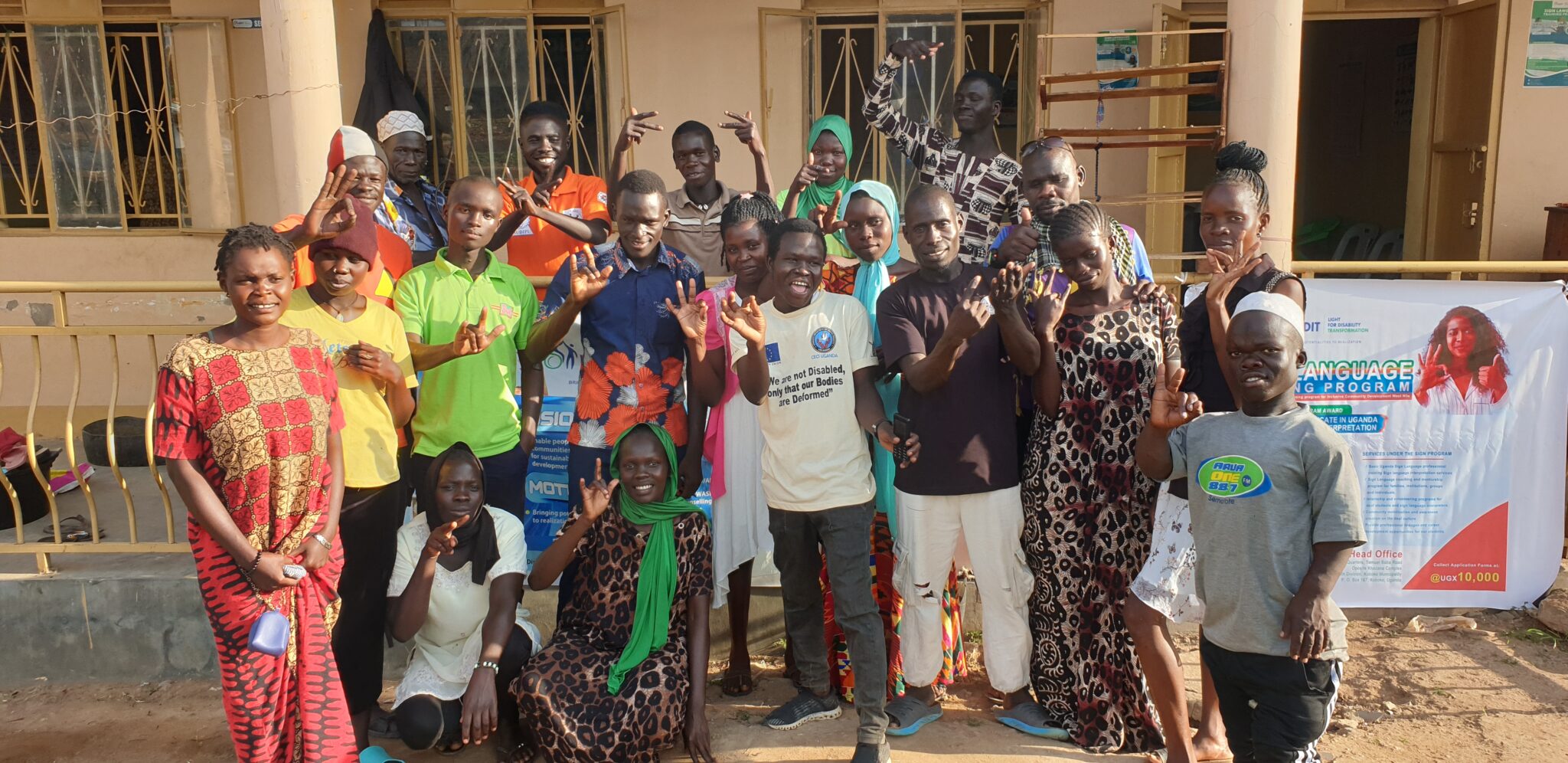
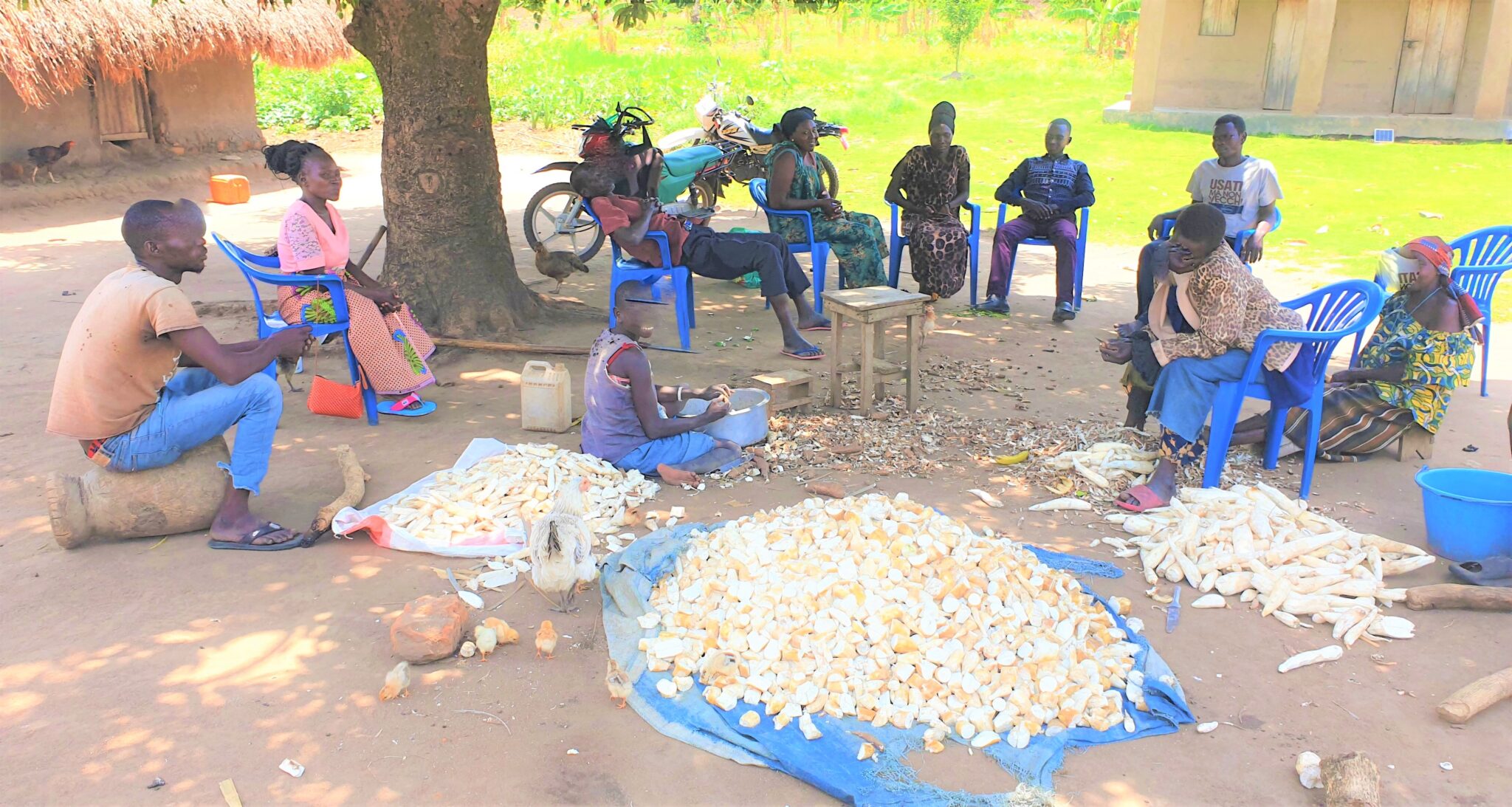

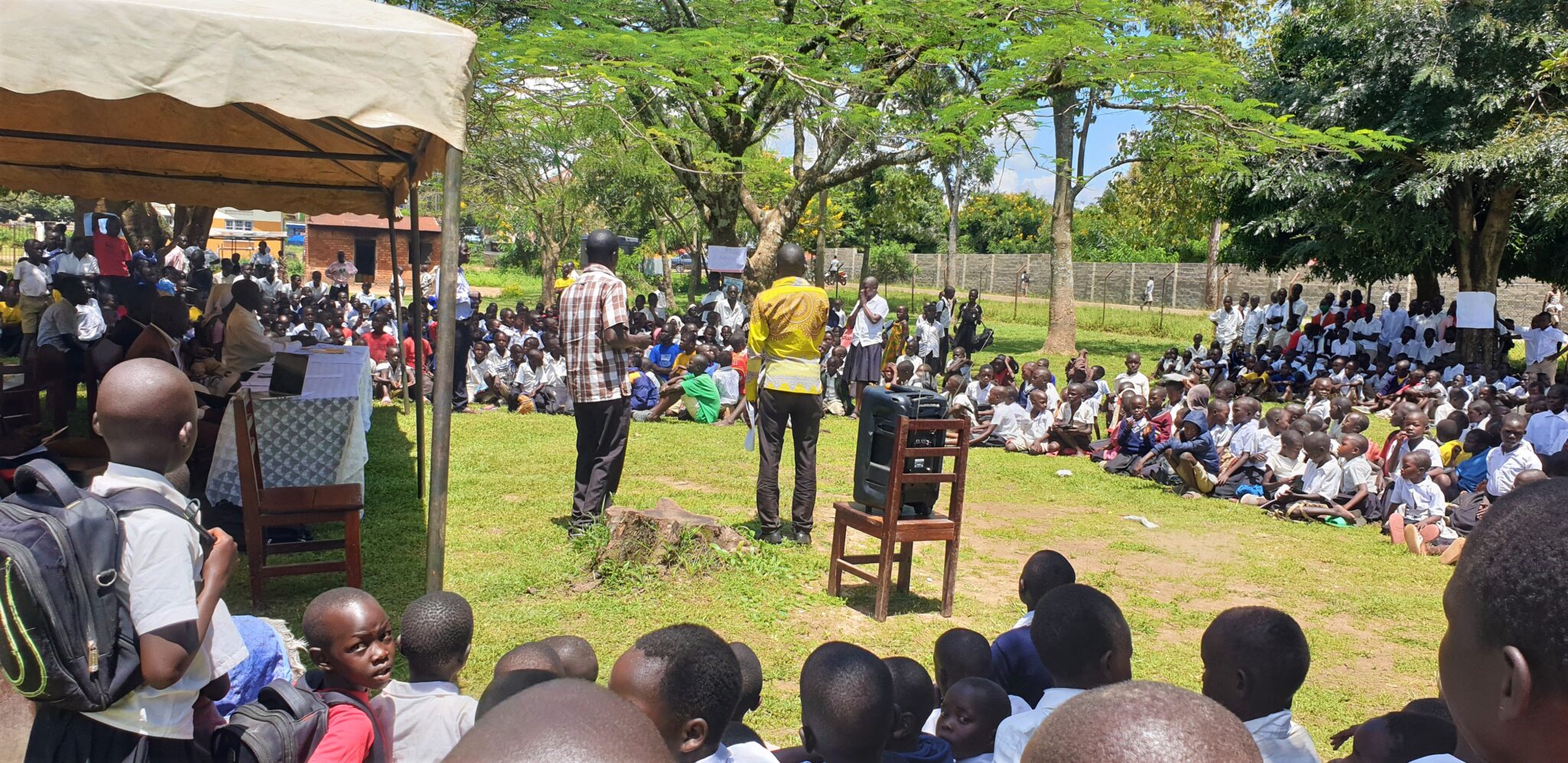
Partners
